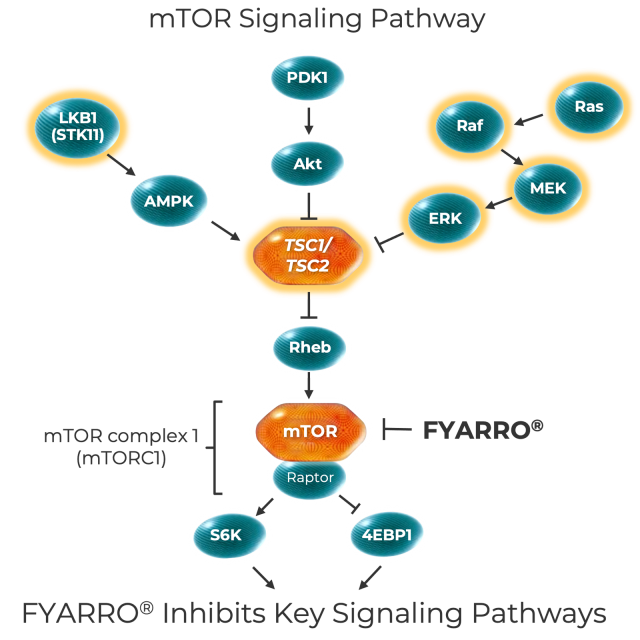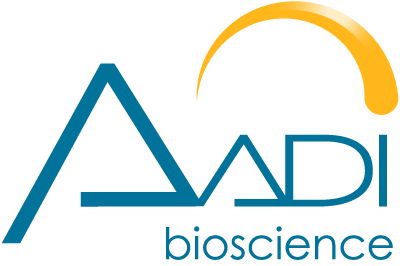Our Science
The mTOR pathway plays a major role in multiple critical cellular processes. Aberrant mTOR pathway activation is associated with a broad range of diseases and frequently driven by alterations in mTOR or other mTOR pathway genes (e.g., TSC1 and TSC2 ).

Inactivating alterations in TSC1 and TSC2 drive mTOR pathway activation and tumor growth
- TSC1 and TSC2 form a tumor suppressor complex that down regulates mTOR activity
- TSC1 and TSC2 alterations occur across a broad range of cancers including bladder cancer, kidney cancer, breast cancer, melanoma, and liver cancer
- No therapies are approved for TSC1 and TSC2 alterations but numerous case reports show durable responses to mTOR inhibition
- Standard CLIA-certified NGS panels already capture TSC1 and TSC2 alterations
Proposed rationale for nab-sirolimus use in patients with tumor-agnostic TSC1 and TSC2 inactivating alterations
- Exploratory analysis of data in AMPECT trial suggest responses to nab-sirolimus may occur in patients with TSC1 or TSC2 alterations
- Data generated in non-PEComa patients with TSC1 or TSC2 alterations in ongoing Expanded Access Program (ASCO 2021 Abstract # 339405)
- In preclinical animal models, nab technology demonstrates greater mTOR pathway inhibition vs. currently approved mTOR inhibitors

Aadi has initiated a registrational trial in Tumor-Agnostic TSC1 & TSC2 Alterations
Learn more
